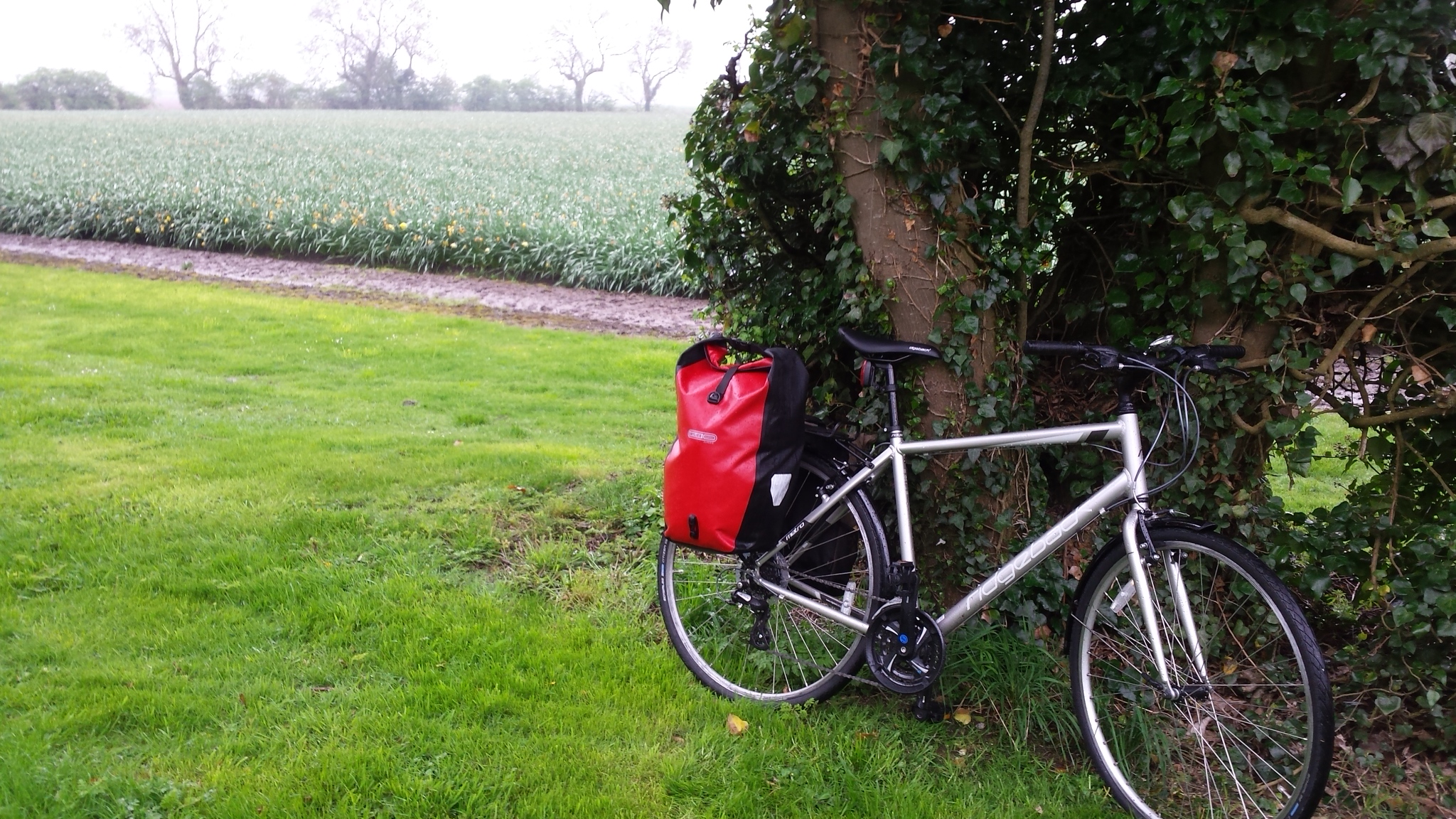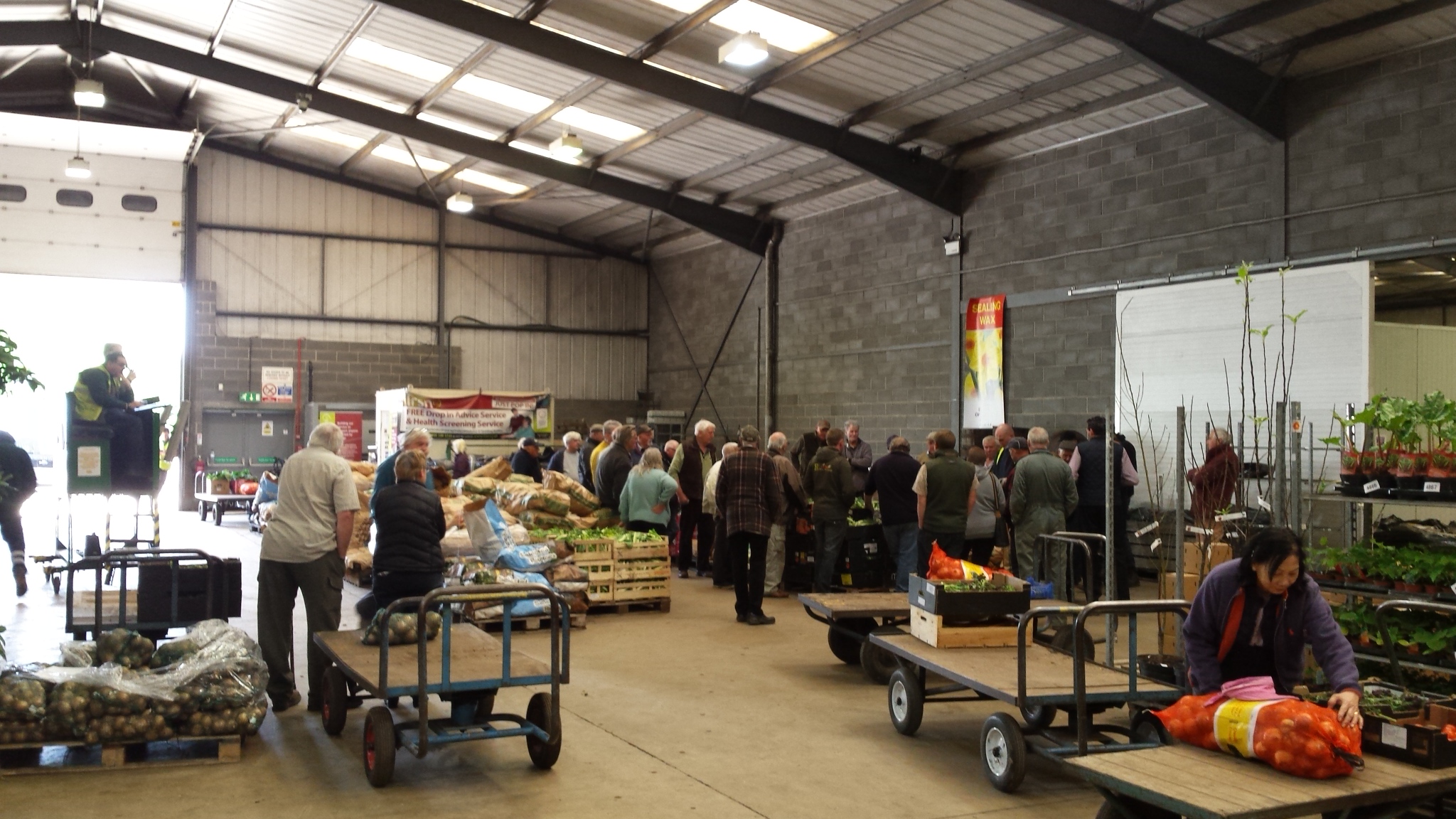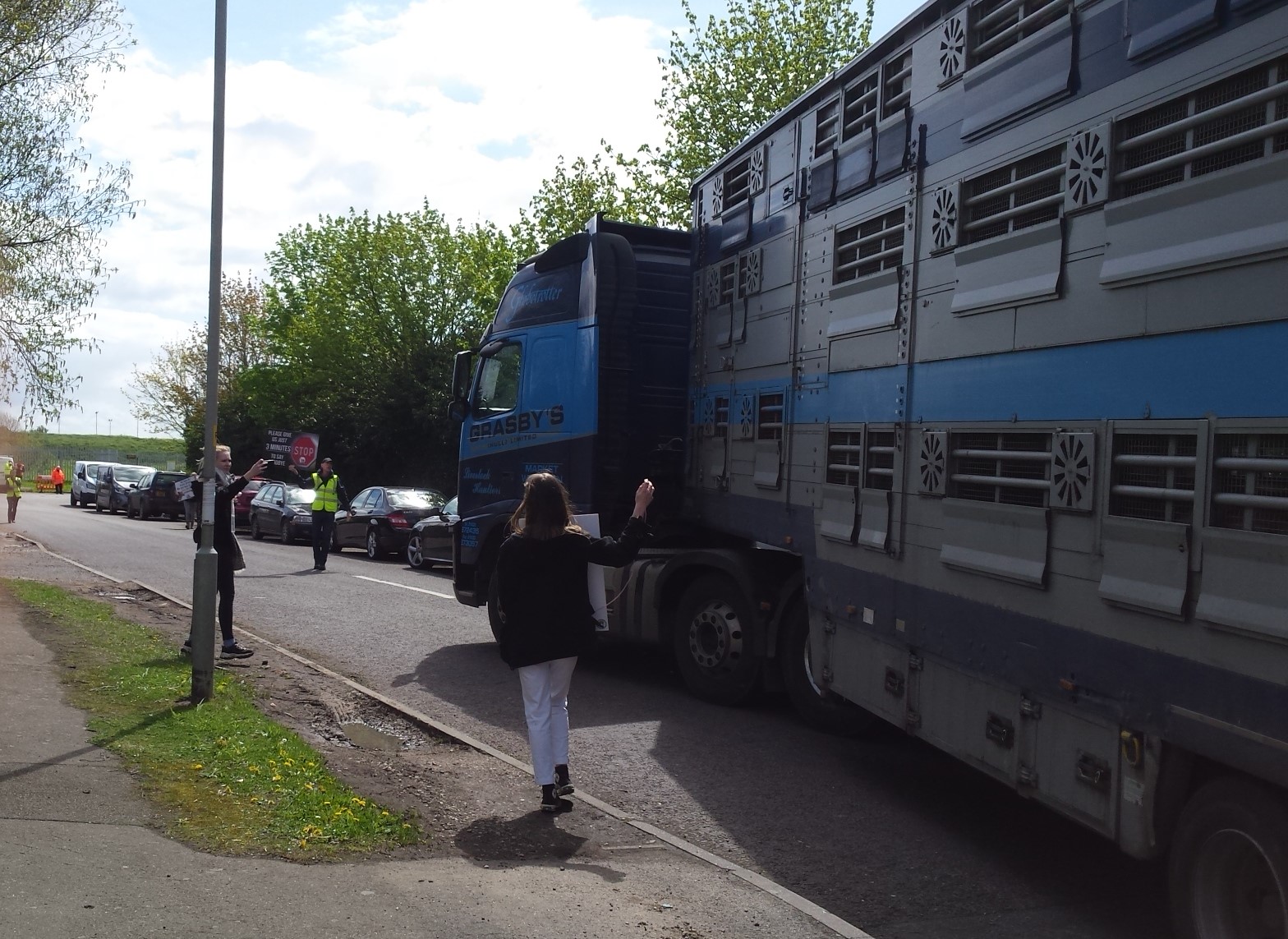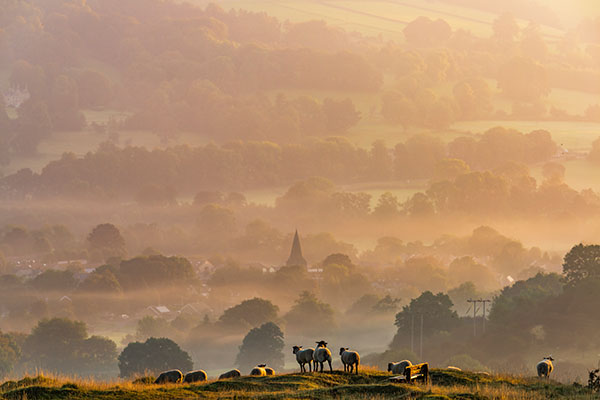It’s St George’s day, the first day of my week on the road in Lincolnshire. I have a full English breakfast sitting in front of me on the table, but I also have nerves rumbling in my belly. On entering Lincolnshire I’m entering some of the country’s most productive land, and the scale of agriculture and manufacturing here reflects that. Lincolnshire produces 12 percent of the country's food and I’m suddenly aware of how disconnected I am with where my food comes from as I look over the vast plains of worked land as I turn my head either way.
First stop: precision farming
I start my journey on the Food, Farming and Countryside Commission’s UK tour with Chris, a future focused farming director responsible for overseeing over 20,000 acres. They grow feed wheat, barley, oilseed rape, sugarbeet, peas and more. Experimentation and innovation is key to his success. Currently Chris is transitioning to direct drilling, a practice yielding both environmental and economic gains, “Fuel use has dropped from 66 litres/ha to 14 in the fields where we direct drill. Though we had to slow down the transition as we learn.” Results have been mixed with some fields responding brilliantly, and others suffering losses. This field-by-field, data-driven approach to farming - precision farming - is key to understanding what innovations work: Optimising yields, minimising inputs and maintaining soil health by utilising GPS guided tractors, variable seed rate application, nutritional tests and field specific approaches to chemical application.

The future of agriculture and horticulture – Brexit questions
People are proud of the role they play providing food for the nation in Lincolnshire. But big questions are hanging over the future of agriculture and food manufacturing as the UK negotiates its exit from the EU. Some farmers I spoke to were quick to reflect on current proposed changes to the Common Agricultural Policy, concerned that a blanket approach to ‘public goods’ was not the answer: “We don’t have the same features as other parts of the country in Lincolnshire, we shouldn’t be judged in the same way” David told me. Others were worried that if we didn’t keep a sufficient focus on food production in our agricultural policy then we are just shifting problems away from our shores, Chris reflected “If we rely on the rest of the world for our food are we just exporting the problem – is that supporting public goods?”.
One place where Brexit is already having a clear impact is in the horticulture sector. “Defra’s lost its voice in Europe and we’re suffering” said Mike Knights who’s the general manager of Spalding auction. Plant passporting issues are having a huge impact on their ability to trade, particularly with suppliers in the Netherlands who are now prioritising trade with other European countries. This has had a massive impact on turnover and Mike worries whether the impact of Brexit combined with the bad winter means some of the country’s big growers will fail to make it through the year.

Supermarket power, local responses
Spalding auction was set up as a space to support the local community, largely made up of growers who aren’t large enough to attract supermarket contracts. A man in the car park tells me “the big problem is the supermarkets, they won’t deal with small suppliers, it’s not worth their time, so the small growers come here”. This commentary on supermarket pressure is echoed when I spend the evening with a young farmers club “they’ll be the last ones to take a hit”. Agricultural chaplain for Lincolnshire told me of local worries about supermarkets using vegetables as loss leaders, commenting “you can get a bag of carrots or onions for 39p in Supermarkets now, where’s the room for making a living in that?”
Neighbours don’t always agree
Visions for the future of our food policy and farming system are far from uncontested. I got a little glimpse of the huge spectrum of this debate in Holbeach. On Monday I heard concerns from young farmers about unfair perceptions of farming, particularly those views portrayed by vegan activists, who they felt held too much social sway in current debates. Later on my ride, I bumped into those very vegans in the same community on a protest outside of Spalding abattoir. They told me they wanted to raise awareness of the reality of what happens in our food system “people think that factory farming doesn’t happen here or it’s a thing of the past.” It was a reminder of the emotive nature and complex and contested public debates that will play a role in public discourse and ultimately some of the drivers of future trade deals and standards.

From the factory to your plate
At the National Centre for Food Manufacturing I gained a sense of the technical challenge of mass producing the perfect food we’ve all come to expect when we reach for our trusted brands. This is the place in which people build an understanding of the techniques, processes and additives required to ensure the food we buy gets to us looking and tasting great, from manufacture to when it reaches our plate. “People say they don’t want those e numbers in their food, but they won’t buy that cheesecake when it comes out the box melted.” Manufacturers are extremely responsive to our concerns, being keenly aware that we vote with our wallets.
Adapting to change
Lincolnshire’s food growing and manufacturing sectors are highly dependent on migrant workers. Improving conditions at home and the impact of exchange rate fluctuations equating to “a 10% pay cut over the year” has led to a low return rate of seasonal workers this year, particularly from Eastern Europe. Farm managers have had to be creative in response and think differently about how they offer employment. Two farmers I spoke to have started collaborating locally to safeguard a high quality shared pool of labour amongst their farms by offering more secure employment over the whole year to staff, with more opportunities for development – packing work in the winter, planting and harvesting in the summer. Their hope is that they can improve the job offer, creating better and more reliable work securing a pool of higher skilled labour locally.
Riding the Brexit breeze
Brexit has bred uncertainty, particularly for UK horticulture. But there was a strong confidence in those I spoke to and a willingness to adapt and innovate in their businesses. Tougher conditions have led to an increasing drive for collaboration and innovation, particularly where there is a shared ethos and understanding among local growers. One thing they don’t tell you about Lincolnshire before you go – the relentless wind. People here are used to difficult conditions and are keen to get on with the job of growing food. With no geographical features here to slow it in its course, people are confident in riding through the Brexit breeze and continue with what they do best – feeding the nation.
Follow the rest of our UK tour
Get involved with the Food, Farming and Countryside Commission
Related articles
-
Finding the road to renewal
Sue Pritchard
New poll by FFCC and the Food Foundation finds 85% of people want to see some of the personal or social changes they have experienced during Covid-19 continue afterwards, whilst just 9% want everything to go back to how it was before the pandemic.
-
Counting on recovery: collecting the data to inform policy post-crisis
Tom MacMillan
We’re starting to gather evidence on community responses to the pandemic, to help shape post-crisis policy. If you are too, let’s team up.
-
The Future is Here
Sue Pritchard
In a rapidly changing world, we need a stubborn optimism for the future.



Be the first to write a comment
Comments
Please login to post a comment or reply
Don't have an account? Click here to register.